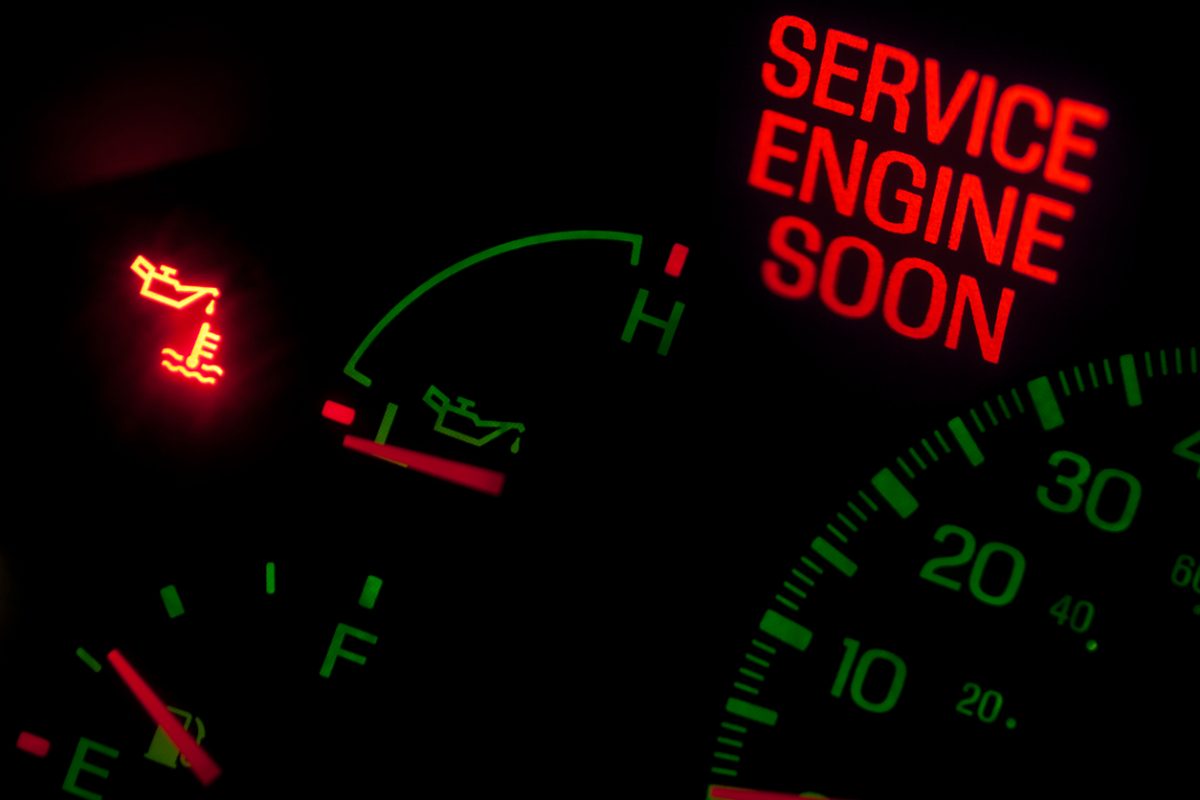It’s essential that your engine oil is at the correct level, so you can drive smoothly on the roads. There are times though when your oil pressure will decrease, and you need to rectify the problem fast. But what actually causes low oil pressure?
To get a detailed insight, our vehicle experts have come together to explain what causes low oil pressure and what it means for your car.
Thankfully, you can order a wide selection of engine oils from us, by trusted brands, which are just the tonic your engine needs to get its oil pressure to the optimal level.
What Is Oil Pressure?
Oil pressure is created when your car’s engine oil goes through a pump, which sits next to the part of your car engine known as the oil pan. The oil is then forced around the engine by the pump at different speeds, depending on the resistance the oil needs to surpass; this is what makes oil pressure.
Oil pressure is measured in pounds per square inch (PSI), and this calculates the force it takes to move the fluid around your car’s engine.
What Is Low Oil Pressure?
Low oil pressure is when there’s a significant drop in pressure, which eventually stops the oil moving around the engine altogether.
The repercussions are that this removes any lubrication from your vehicle’s engine parts, leading to metal components colliding with each other, becoming worn down and damaged.
The Causes Of Low Oil Pressure
1. An Internal Or External Oil Leak
Any oil which escapes from your car’s engine will cause the pressure to become a lot lower than it should be. Oil leaks can occur due to the age of your engine, as well as general wear and tear.
2. Engine Overheating
If your vehicle overheats excessively, this makes the oil within your car burn faster, and if the oil burns quicker than it should do, this leads to low oil pressure.
3. Low Oil Levels
If you don’t regularly check the levels of your engine oil, the amount of oil will keep decreasing, until there isn’t any fresh oil left. What happens then is because the oil pump can’t find any fresh oil to pump around the engine, it’ll pump air from the oil pan around the engine instead of fluid, resulting in low oil pressure.
So, it’s always advised that you analyse your car’s dipstick every month, to ensure the oil levels are not too low.
4. Damaged Or Worn Engine Bearings
Like all machine parts, there comes a time when the components start to wear down, and your car engine is no exception. Vehicles which have high-milage are more likely to get worn engine bearings, which will stop the oil travelling around smoothly, leading to lowered oil pressure.
5. Dirty Oil Filter
When your car’s engine oil filter is dirty, this causes road debris and mucky particles to get into your engine. Much like your engine bearings, over time your engine filters can become obstructed, meaning the oil can’t flow effectively through your engine.
This culminates in low oil pressure, so it’s advised to check if your car’s oil filters need to be changed by a mechanic.
6. A Faulty Oil Pump
When your car’s oil pump isn’t working correctly, the oil pressure can’t be built up which forces the engine oil to travel around the components. If the oil filters aren’t working correctly, faulty oil pumps can transfer this unclean oil throughout the engine, causing severe internal damage.
7. Low Or High Oil Viscosity
Engine oil viscosity refers to the thickness of your engine oil. If your engine oil is too thick or too thin, it’ll struggle to travel around the components and cause low oil pressure.
It’s important to note that each individual engine has its own viscosity rating, which then matches up to an engine oil grade. So it’s vital that you check your vehicle handbook to ensure you’ve got the right oil for your car, as if not, you risk damaging your car engine even further.
The Signs Your Car Has Low Oil Pressure
1. Strange Noises From The Engine
Without the engine oil lubricating each component, your engine will start making unusual noises while you’re driving, such as ticking.
2. The Smell Of Burning Oil
Engine oil prevents any metal engine parts getting too hot from friction. When you’ve got low oil pressure, there’s little force to help the oil overcome any resistance, therefore stopping the oil from reaching and cooling components.
A burning or singed smell is an indicator of this happening, making it an opportune time to check for low oil pressure.
3. Your Car Engine Overheats
Going hand-in-hand with the smell of burning oil, low oil pressure affects the overall temperature of your car. As there’s less oil travelling around the components, this means it has to work harder, which eventually results in excessive overheating.
4. A Dashboard Light Will Come On
The most tell-tale sign that your car has got low oil pressure is the dashboard warning light that pops up. This red light shows the symbol of an oil can, and means you need to check your oil pressure levels as soon as possible.
By understanding the effects of low oil pressure, you can avoid having to pay for repairs to your car. Knowing effective ways to reduce your car’s fuel consumption can also make a huge difference to how much you spend on your vehicle every year.



